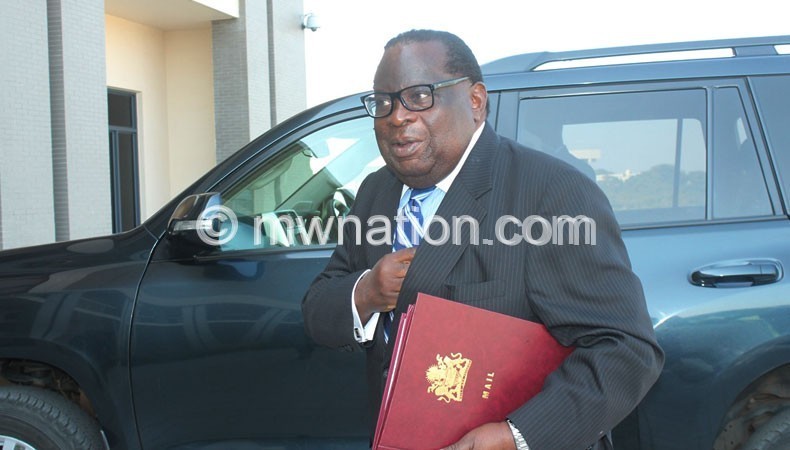Kwacha fall reaches equilibrium—Goodall
Minister of Finance, Economic Planning and Development Goodall Gondwe has said the kwacha exchange rate seems to have reached “the point of equilibrium” and the local unit should now start to stabilise.
The minister said this on Friday in Lilongwe during the presentation of the Mid Year Budget Review Statement in Parliament.
“It is, therefore, expected that the [kwacha exchange] rate should stabilise soon and those speculations that are perpetuating the depreciation should take note of this,” he said.
In economics, equilibrium is a state in which forces such as supply and demand are balanced, and in the absence of external influences, the value of economic variables, in this case the kwacha exchange rate, will not change.
In some authorised dealer banks (ADBs), the kwacha seems to have slightly gained against the dollar from last Wednesday bysome few percentage points.
For instance, last Wednesday the kwacha was trading at K765 to a dollar, but as of yesterday, according to published foreign exchange rates, the local unit traded at between K755 and K761 to the greenback in some ADBs.
The same was also observed on kwacha exchange rate against the South Africa rand and British pound.
Reserve Bank of Malawi (RBM) spokesperson Mbane Ngwira was not immediately available yesterday to comment on what could have triggered a slight appreciation of the kwacha against major foreign currencies.
But Gondwe said the free-floating exchange rate adopted in May 2012 at the behest of the International Monetary Fund (IMF) meant that the exchange rate would be left to the market force to determine its level.
“It was known and many said so, that a diminishing foreign exchange supply against a persistent high demand for forex, would lead to continued depreciation of the kwacha until a point of equilibrium is reached,” he said.
Last week in Blantyre, on the sidelines of the 5th Public Affairs Committee (PAC) All Inclusive Conference, Gondwe said Treasury and RBM have instituted measures that could “freeze” the steep fall of the kwacha, which depreciated by 52 percent between June and December 2015.
Some of the measures include reducing domestic borrowing, which has dropped by 88 percent to K4.3 billion in the first six months of 2015/16 fiscal year from K36.2 billion in the prior period, according to RBM.
Earlier, RBM accused commercial banks of engaging in speculative tendencies particularly when they “started unwinding short positions” to replenish forex.





